I Was Alone In The Cold Of A Winter's Day
Immersing myself in the healing properties of Fleetwood Mac's Bare Trees LP
This has been, without question, a difficult winter.
The big snows and seemingly endless strings of freezing grey days here in the Hudson Valley would be bad enough, of course; but what with the grim reaper picking off one musical legend after another on an almost daily basis (RIP Jerry Butler, Rick Buckler, Roberta Flack, David Johansen, Roy Ayers, Brian James, Joey Molland, etc. etc.), the helpless horror of watching January’s Southern California wildfires wreak havoc from three thousand miles away, and the sickening experience of watching a revenge-maddened president trying to flip our democracy into a transactional dictatorship, there has been an almost unbearable heaviness to these last few months.
And as much as I’m looking forward to warmer temperatures and the green lushness of the Hudson Valley after all this snow and rain, I also shudder to think about what fresh hells await us this spring as the con artist in the White House — in collaboration with a sociopathic South African billionaire and a feckless gang of GOP lickspittles — forges blithely ahead with tanking our economy, destroying our federal institutions, scrubbing our military history of anyone that isn’t white or male, and trashing our stature on the world stage by picking needless fights with our allies and selling us (and our former ally Ukraine) out to the Kremlin, while also attacking immigrants, trans people, the media, DEI programs, Social Security, Medicaid, public education and our national forests.
It’s all a lot to process, to say the least; life is certainly hard enough already without having to deal with this kind of villainous, traitorous bullshit. Still, one of the best pieces of advice I’ve received during this attempted fascist takeover/rebranding of the USA — and one which I’ve tried to pass along to friends who are struggling right now — is that dark, chaotic and stressful times such as these require diligent self-care.
Yes, it’s important to stay informed and get involved; and yes, defending democracy often requires stepping out of your comfort zone. But it can also be difficult to effectively fight back or connect with allies in your community when your brain and soul are shorting out from an overload of horrifying news. Which is, after all, part of the Project 2025 strategy — to overwhelm us, make us feel helpless, and make us believe that oligarch- and christofascist-abetted white supremacist rule of the USA is inevitable. (It is absolutely not inevitable, though we need to push back against it with something significantly stronger and fresher than the old “Give us $5 and wait ‘til the next election cycle” approach that many Dem politicians are apparently still stuck on.)
Since January, I’ve been trying hard to heed this self-care advice, while also trying to do something each day to make a positive difference — whether it’s calling my rep, senators and governor, finding ways to support people and organizations who are fighting the good fight on local, national and global levels, or talking various friends off the ledge. I have also been attempting (not always successfully) to limit my time on social media, as well as attempting to spend more of it focusing on the many things, large and small, that infuse my daily existence with joy.
There are times, though, when both the news and weather feel unrelentingly grim, and my spiritual battery has become distressingly drained. And in those times, the best medicine for what’s ailing me is to bust out my vintage Pioneer headphones, slap a favorite album onto the turntable, then lay back, close my eyes and recharge via the transportive and healing properties of music.
For these audio therapy sessions, I’ll typically pick an album that’s deeply familiar to me and has a widescreen mix I can get really lost in — something like Pink Floyd’s Meddle, The Who’s Quadrophenia or Marvin Gaye’s What’s Going On. But upon returning from a January visit to Kingston’s Rocket Number Nine with a still-sealed 1977 repress of Fleetwood Mac’s Bare Trees, it occurred to me that I’d never actually given this fine 1972 LP a listen on the ‘phones. And after a particularly grueling day a few weeks back, I knew it was time to do just that…
While in Los Angeles last week for my Redd Kross book event, I had the opportunity to spend several joyous mornings (and one magical afternoon) hanging out at the Farmers Market on 3rd and Fairfax, which has been my L.A. “happy place” since the 1970s. Like just about everything in L.A., the place has been through some heavy changes since the above TV news clip was filmed there in 1978; but unlike with so much of the rest of the city, the Farmers Market (which opened in 1934) has thankfully managed to retain much of its old charm and vibe. It remains one of the few “tourist attractions” in the city to also draw a steady stream of loyal locals; during my two decades as an L.A. resident, I ate and worked there at least once or twice a week, and often more.
The biggest change to the Farmers Market occurred in the late 1990s, around the same time that the hideous shopping center known as The Grove was being built next door, when the entire northern section of the Market was torn down to make way for more modern/generic retail spaces. At the time of its demolition, this section of the Market had admittedly taken on something of a decrepit and unappealing aspect; many of the mom and pop shops that once called it home had already been shuttered due to lack of business, and those that remained offered inventory that was remarkable chiefly for its impressive degree of dustiness. But it was there in brighter, busier days that I first encountered Bare Trees, in the bins of a funky little t-shirt-festooned shop called Manny’s Records.
I didn’t buy the album at the time; in fact, I was rather confused by its very existence. This was May 1979, the same weekend of my first visit to a used record store and a week or two before my head lice scare, and I had gone with my Aunt Geri to Manny’s in hope of finding Boston’s first album — some friends had given me Don’t Look Back for my birthday, which I loved, and now I wanted the one with all the big radio hits like “More Than a Feeling” and “Peace of Mind” on it. Buy Manny’s was all sold out of it, so I started flipping through the shop’s bins in search of something else I might want.
At this early point in my music fandom, my album collection numbered in the single digits, and my knowledge of modern pop music was so limited that I spent my hour at Manny’s trying to figure out — as I would during my next several years of record store visits — which albums by certain artists contained songs of theirs that I actually knew. I liked several of the Fleetwood Mac songs that I’d heard on the radio, and that afternoon I traced them to the band’s self-titled 1975 album and 1977’s Rumours, both of which I recognized from Geri’s record collection.
But there were also all these other records in Manny’s Fleetwood Mac bin that I’d never seen or heard of before — including Bare Trees, whose spooky cover art immediately grabbed my attention. But while I was curious enough to flip the album over and read its track listing, none of the song titles meant anything to me at the time, and I remained completely oblivious to the fact that the “R. Welch” listed in the writing credits of “The Ghost” and “Sentimental Lady” was the same person as the Bob Welch whose “Ebony Eyes” was one of the first singles I’d ever bought back in the spring of 1978.
It was so difficult for me to even wrap my mind around the idea that Fleetwood Mac had existed before 1975. I knew nothing yet of their blues roots or subsequent lineup upheavals, or really anything about the band beyond their radio hits, so I put Bare Trees back in the bin and moved on. I wound up going home that day with The Steve Miller Band’s Greatest Hits 1974-78, which was filled with songs I already knew and liked, one of which would soon become legendary among my family and friends.
It would be another three-plus decades before I actually heard Bare Trees in its entirety. In 2010, freshly ensconced in Echo Park after selling the house in Palm Springs that my ex and I had co-owned (and where I’d lived full-time for the last year and a half) and moving back to L.A., I walked a few blocks from my new apartment to Origami Records. Located in a small, narrow storefront just down Sunset Boulevard from the Echoplex, Origami was a hipster-centric kinda place whose stock was largely comprised of new vinyl from indie labels and artists that didn’t particularly interest me. But the store also had a small used bin, almost as an afterthought, which was filled with all sorts of older treasures that were usually priced between five and ten bucks.
Tax troubles and an impending move had forced me to sell off most of my records back in 2007; but now that I was rebuilding my life in L.A., the time had come to rebuild my record collection as well. Origami’s used bin was a wonderful resource in this quest, regularly providing me with affordable copies of old favorites. Original pressings of Elvis Costello’s Get Happy, UFO’s Lights Out, The Bee Gees’ Main Course and a white label promo copy of Cheap Trick’s Heaven Tonight for six or seven dollars apiece? Yes, please!
With those prices, I would occasionally be moved to grab a record that I hadn’t actually heard before, just on the chance that I might like it. One afternoon at Origami, I saw an original 1972 pressing of Bare Trees in the bin for five bucks, and figured what the hell. By this time, I was pretty well versed in the bluesy original incarnation of Fleetwood Mac, but the four and a half year space between Peter Green’s depression-fueled exit and the arrival of Lindsey Buckingham and Stevie Nicks was still largely a mystery to me, so to speak — at least as far as their actual music was concerned.
I was in a pretty heavy 1970s mood at the time — I mean, I always am to some degree, but my book Big Hair & Plastic Grass had just been released, and I’d just moved into a ‘70s-built townhouse bachelor pad complete with a groovy gas fireplace in the living room (which I plopped an equally groovy white shag rug in front of). It felt like the right time for me to investigate some corners of ‘70s rock, soul and funk that I’d previously missed or ignored, and Bare Trees fit right in with that concept.
Bare Trees was heavy on the ‘70s vibe, all right — not in the glitzy, air-conditioned, chrome-and-cocaine sense of Fleetwood Mac and Rumours, but in an ultra down-to-earth manner that brought back childhood memories of drinking apple cider from a chipped enamel mug while eating gloppy “natural” peanut butter on cracked wheat bread and surreptitiously wiping snot on the leg of my brown corduroy trousers. The record immediately felt like an old friend, especially Bob Welch’s “Sentimental Lady” (which he later re-cut in 1977 for his solo debut French Kiss, the same album that featured “Ebony Eyes”), the Christine McVie-sung “Spare Me a Little of Your Love” (which I was sure I’d heard someplace before, or maybe it just presaged her later Mac work so vividly that it sounded familiar) and Danny Kirwan’s chiming instrumental “Sunny Side of Heaven,” which sounded as if the band had plugged into exactly that.
In the years since then, Bare Trees has gradually become my favorite Fleetwood Mac album, its slow rise to the top of my personal Mac heap mirroring its 16-year journey to Platinum status in the US. Released in the spring of 1972, the album peaked at #70 on the Billboard 200, but it received enough of a belated sales boost from the success of Fleetwood Mac to be awarded a Gold record in 1976; in 1988, its reappearance on Compact Disc helped push the album over the million sales mark.
The 1977 version of the album I bought at Rocket Number Nine was undoubtedly a repress motivated by mid-70s Macmania. Though I already owned that original pressing of Bare Trees, there’s a loud pop in the middle of “Child of Mine” that multiple SpinClean sessions have never been able to eradicate, so I jumped at the chance to get a never-played ‘70s edition, even if it was a repressing. And this was the one I chose to spin for my headphones session the other night.
I’m not any kind of hardcore audiophile, and I generally gravitate towards vintage-but-affordable consumer-grade electronics. (For those keeping score at home, I have a Technics SL-MK1200mk2 turntable that I bought new in the late 1990s, an Onkyo TX-2500 mk2 receiver from 1978, a pair of Epicure EPI M150 speakers from the mid 1970s, and my headphones are early-’70s Pioneer SE-50s with adjustable volume and tone controls — nice-sounding stuff, but nothing that was ever featured in the centerfold of High Fidelity magazine.) But I do appreciate a warm and spacious soundstage when I hear one, especially when listening on headphones, and I was initially taken aback by how demo-like Bare Trees sounds upon closer examination; the instruments and vocals are all kind of bunched together in a gooey cluster, without much apparent thought given to placing them in and around the stereo spectrum.
This, of course, isn’t entirely surprising, considering that a) the band produced the record themselves, and b) they bashed it out at De Lane Lea — a popular London recording operation that was nonetheless a few rungs below top studios of the day like Abbey Road, Olympic, Advision, Trident and Morgan Sound — in only a few days between touring commitments. And, of course, stellar audio fidelity isn’t necessary when you have vibe for days, which is exactly what Bare Trees brings to the table, along with a number of excellent tunes. It only took about two minutes of the opening boogie “Child of Mine” for the lo-fi shock to wear off, by which time I was fully transported into the album’s homespun-yet-atmospheric universe.
Though recorded in London, Bare Trees was “gotten together in the country” at Benifold, the band’s communal Victorian pile in East Hampshire, and there’s a definite sense of rustic remove in the album’s grooves that matches up well with John McVie’s evocative cover photo. Welch’s mellotron-draped “The Ghost,” Kirwan’s elegaic “Dust,” “Sunny Side of Heaven” and the riffy title track are all quite clearly songs from the woods, and McVie’s rocker “Homeward Bound” — the most urban-sounding thing on the record — is all about desperately wanting to get back home to her country comforts.
Meanwhile, “Danny’s Chant” — a wah wah-lashed instro that would sit nicely in any proto-stoner rock playlist amid the likes of Black Sabbath, Leaf Hound and “Prince Kajuku”-era UFO — comes across here like the soundtrack to some nameless nocturnal pagan ritual happening deep in the forest. And though the immensely troubled Kirwan was sacked from the band under significantly less than amicable circumstances during a US tour to support the album, the spirit on these recordings is communal, playful and welcoming. In other words, just the sort of sonic tonic for times when you’re feeling alien and adrift amid your country’s deep-seated insanity.
“I was alone in the cold of a winter’s day/You were at home so snug in your bed,” Kirwan sings on the title track, but listening to this album alone in the darkness of this particular winter’s night — hunkered down against the elements here in the lower hills of the Shawangunk Mountains — made me feel as warm and toasty and centered as if I were kicking back on a blanket in front of a roaring campfire with a cup of mulled wine. By the time the band’s elderly East Hampshire neighbor Mrs. Scarrott ended the the album with a sweetly creaky reading of her poem “Thoughts On a Grey Day,” I felt recharged, reconnected to the magic of the universe, and ready to face with a smile whatever the following day would throw at me.
You may also dig:

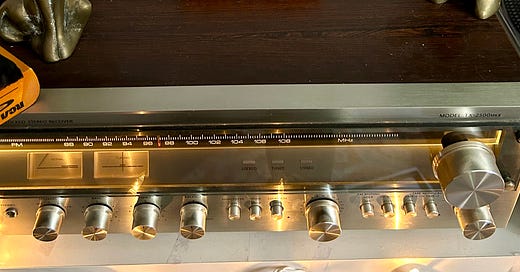



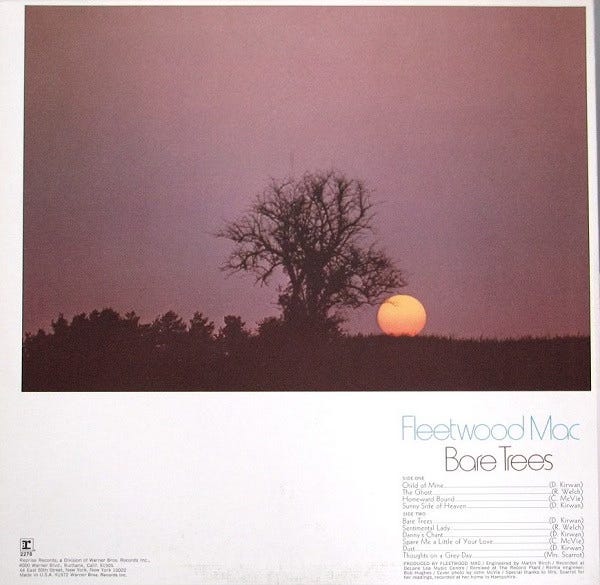
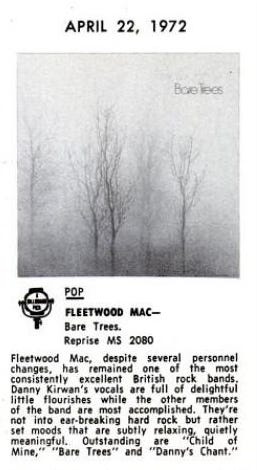

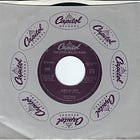
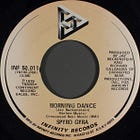
I was very late to this particular Mac party. Unsurprisingly, as a tween/teen during the initial years of the Buckingham/Nicks era, Fleetwood Mac, Rumours, and Tusk were my sweet spot albums. I knew about the existence … the idea … of the Peter Green era, and the jumbled, confusing middle era, but, like you Bare Trees remained a … well, you know.
Growing up near the NH seacoast, sometimes it was difficult to pull in WBCN out of Boston. By the time I was in college BCN was our collective first choice, but sometimes the radio waves didn’t cooperate. Plan B was typically the local rock station out of Portsmouth and they were … fine … except they would play the … same … friggin’ … songs … evvvvveryyyyyyyy … sinnnnngle … day. My dudes and dudettes … I *never* need to hear Baba O’Riley on the radio ever again should I live to be a thousand years. Can it still kick off Who’s Next? Absolutely … it is perfect right there. But, whooooooo boy howdy … their daily playlist was stuck in a rut. Except …
The midday DJ, Lori D., seemed to go off script every now and again and spin Hypnotized from Mystery to Me. Not every day … mercifully … but often enough that it became familiar. I was a broke college student who couldn’t afford taking too many risks with my very limited music spending, so it was into the mid-nineties before I mustered up the courage and disposable income to take a chance on the mostly unfamiliar. And it was a risk rewarded! It’s an enjoyable album (well, CD). So, as you’d expect, emboldened by the experience I ran right out and purchased Bare Trees and oh my word …
Hahaha … just kidding! I was an idiot and didn’t recognize a single song … the cover looked too bleak … and it was another TWENTY YEARS before I gave it a chance. And yes … oh my word. I knew from the opening bars of Little Child of Mine that ‘90s Timmy had some explaining to do. I don’t know if I can call it my favorite Mac album … there’re too many good choices, but I return to it often.
And, finally, (you’re welcome, everyone!) the reason I began to reply in the first place …
A week or two ago I was trying desperately to not-doomscroll through social media, and I came across a friend who had posted a photo of some, yes, bare trees out in a field. They were not John McVie’s bare trees, yet the overcast misty day was similar … similar enough that the photo earwormed me. Needless to say, I knew right away what album was going to be on deck the next day. It only took me probably forty years too long to figure it out, but it’s one of their best.
Thanks for this deep dive. I discovered and fell for Bare Trees very late in life and immediately felt it was one of those magical, play-it-all-the-way-through types of records, as you point out. Kirwan's playing is so subtle, nothing like Peter Green's or Lindsey's.